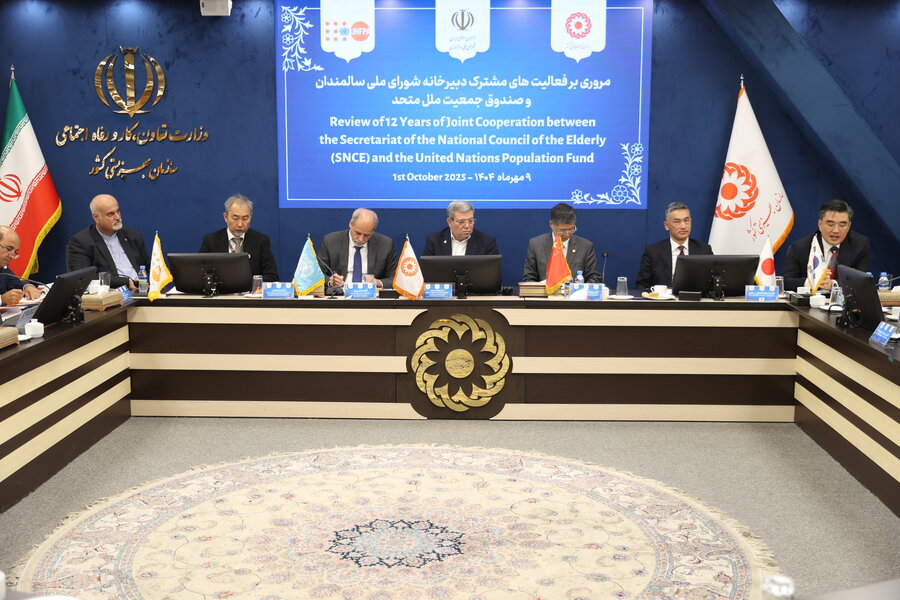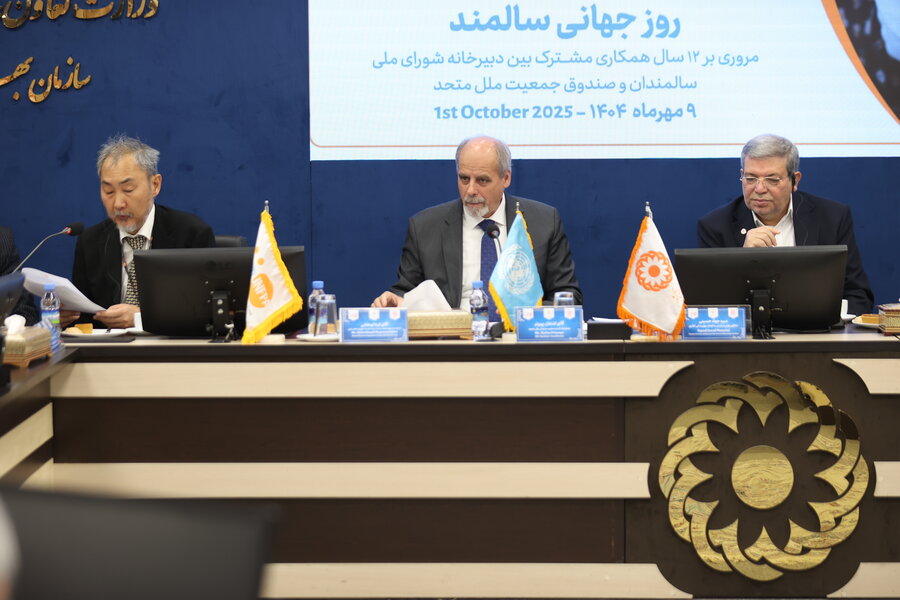according to the Public Relations and International Affairs Department, on Wednesday, October 1 (Mehr 9), coinciding with the International Day of Older Persons, a ceremony was held at the State Welfare Organization of Iran attended by Seyed Javad Hosseini, Head of the organization, his deputies, Zia Hashemi, Deputy for Cultural and Social Affairs to the First Vice President, members of the National Council for the Elderly, ambassadors of China, South Korea, and Japan, and the Representative of the United Nations Population Fund (UNFPA) in Iran.In their remarks, the ambassadors of China, South Korea, and Japan outlined their respective national policies on aging and expressed interest in further cooperation with Iran, emphasizing the exchange of successful experiences in elderly care and policy implementation.During the event, the poster for health assistance for persons with disabilities and older adults in Iran was also unveiled in the presence of the ambassadors, the UNFPA representative, and the Head of the Welfare Organization.In his speech, Seyed Javad Hosseini, Head of the State Welfare Organization, appreciated the ambassadors of China, Japan, and South Korea, as well as the UNFPA and other international agencies that have maintained longstanding collaboration with Iran’s Welfare Organization and the National Council for the Elderly.He stated:“We began celebrating the Day of Older Persons yesterday with visits to senior gatherings in District 6 of Tehran Municipality, launching the ‘Rose of Kindness’ campaign, where younger generations presented roses to the elderly. Today’s ceremony marks our second event, and later this afternoon, I will travel to Hamedan to inaugurate a restaurant dedicated to older adults as a symbolic initiative. We will also launch the ‘Salam Plan’, turning schools into evening social hubs for the elderly.” Hosseini expressed his appreciation for over a decade of valuable partnership with UNFPA, noting that this continuous cooperation has led to the design and implementation of numerous policies, programs, and projects in the field of aging — including the National Document on Older Persons, the National Action Plan, the National Survey on Aging, the formal caregiver training system, and the Age-Friendly City initiative.“At present, 18 cities across Iran have been designated as age-friendly, and significant progress has been made in improving urban infrastructure and creating legal and supportive frameworks for vulnerable groups,” he said.
Hosseini added that these international collaborations have facilitated the exchange of global best practices, enhanced the scientific and operational capacities of Iranian experts, and built a solid foundation for the future of aging policies in the country.



Your Comment